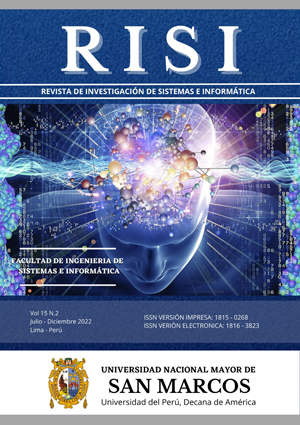Short-Term Residential Electric Power Consumption Forecast Using Machine and Deep Learning Algorithms
DOI:
https://doi.org/10.15381/risi.v15i2.23909Keywords:
Principal component analysis, exploratory data analysis, machine learning, deep learning, artificial neural network, linear regressionAbstract
The objective of this research is to create prediction models for electric power consumption, in the short term, using the multiple linear regression algorithm and an artificial neural network. It is a descriptive-explanatory type of research, and the methodology of data science is used to achieve the stated objective. The models are trained and evaluated using monthly invoiced electricity data in Uruguay, during the period 2000-2022, in addition to measurements of ambient temperature and relative humidity, as well as the percentage variation of the consumer protection index. Through correlation analysis and principal component analysis, the importance of the selected explanatory variables is verified, prior to obtaining the models. The linear regression model had an R2 of 0.782 and the neural network model of 0.797, the residuals were normally distributed for both models, and the RMSE, MAE, and MAPE metrics had similar values in both models as well. The neural network model had a better performance, compared to the linear regression model, regarding the prediction of electrical energy for the months of July and August of the year 2022.
Downloads
Downloads
Published
Issue
Section
License
Copyright (c) 2022 César Aristóteles Yajure Ramírez

This work is licensed under a Creative Commons Attribution 4.0 International License.
AUTHORS RETAIN THEIR RIGHTS:
a. Authors retain their trade mark rights and patent, and also on any process or procedure described in the article.
b. Authors retain their right to share, copy, distribute, perform and publicly communicate their article (eg, to place their article in an institutional repository or publish it in a book), with an acknowledgment of its initial publication in the Revista de investigación de Sistemas e Informática.
c. Authors retain theirs right to make a subsequent publication of their work, to use the article or any part thereof (eg a compilation of his papers, lecture notes, thesis, or a book), always indicating its initial publication in the Revista de investigación de Sistemas e Informática (the originator of the work, journal, volume, number and date).


